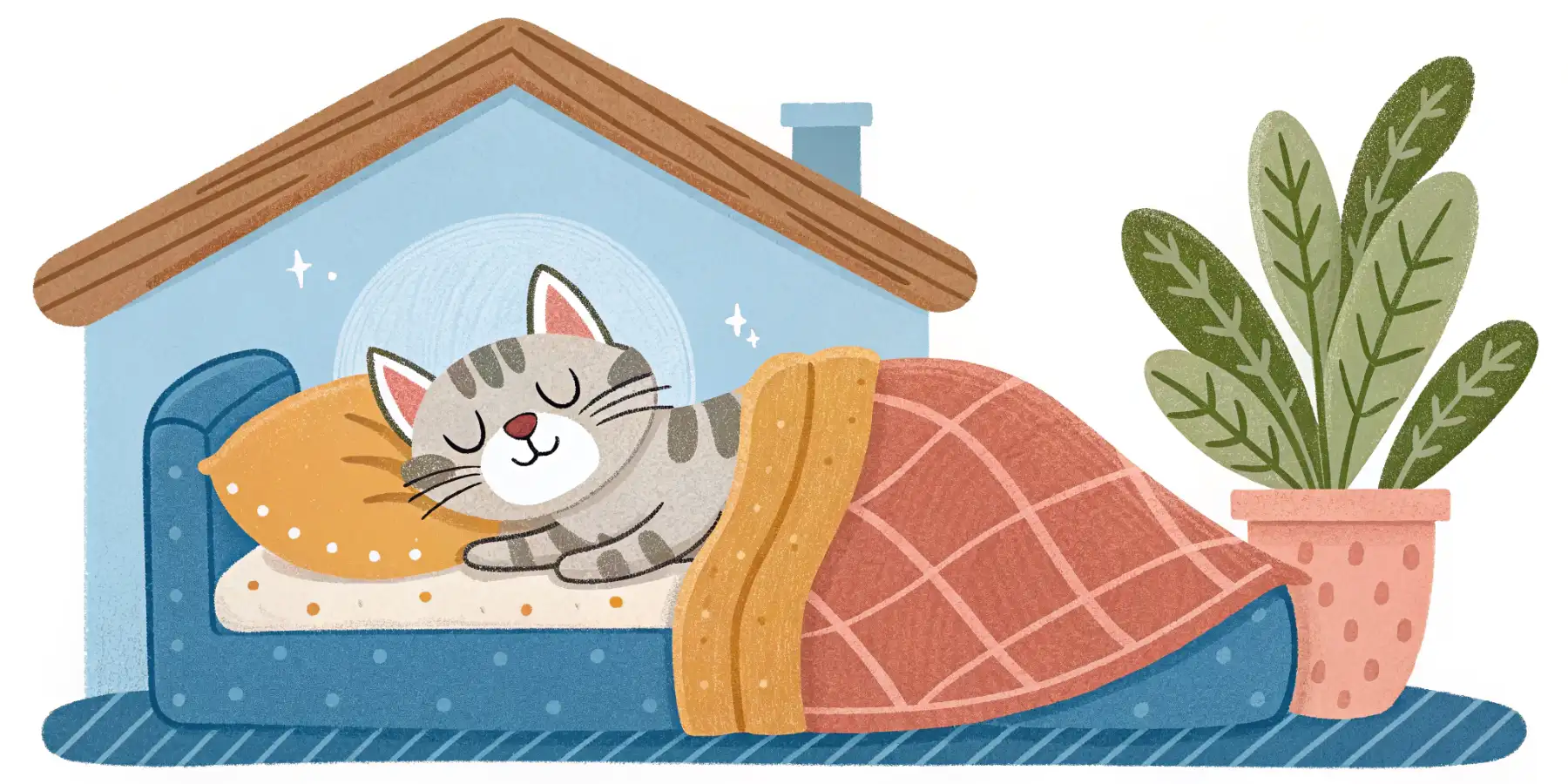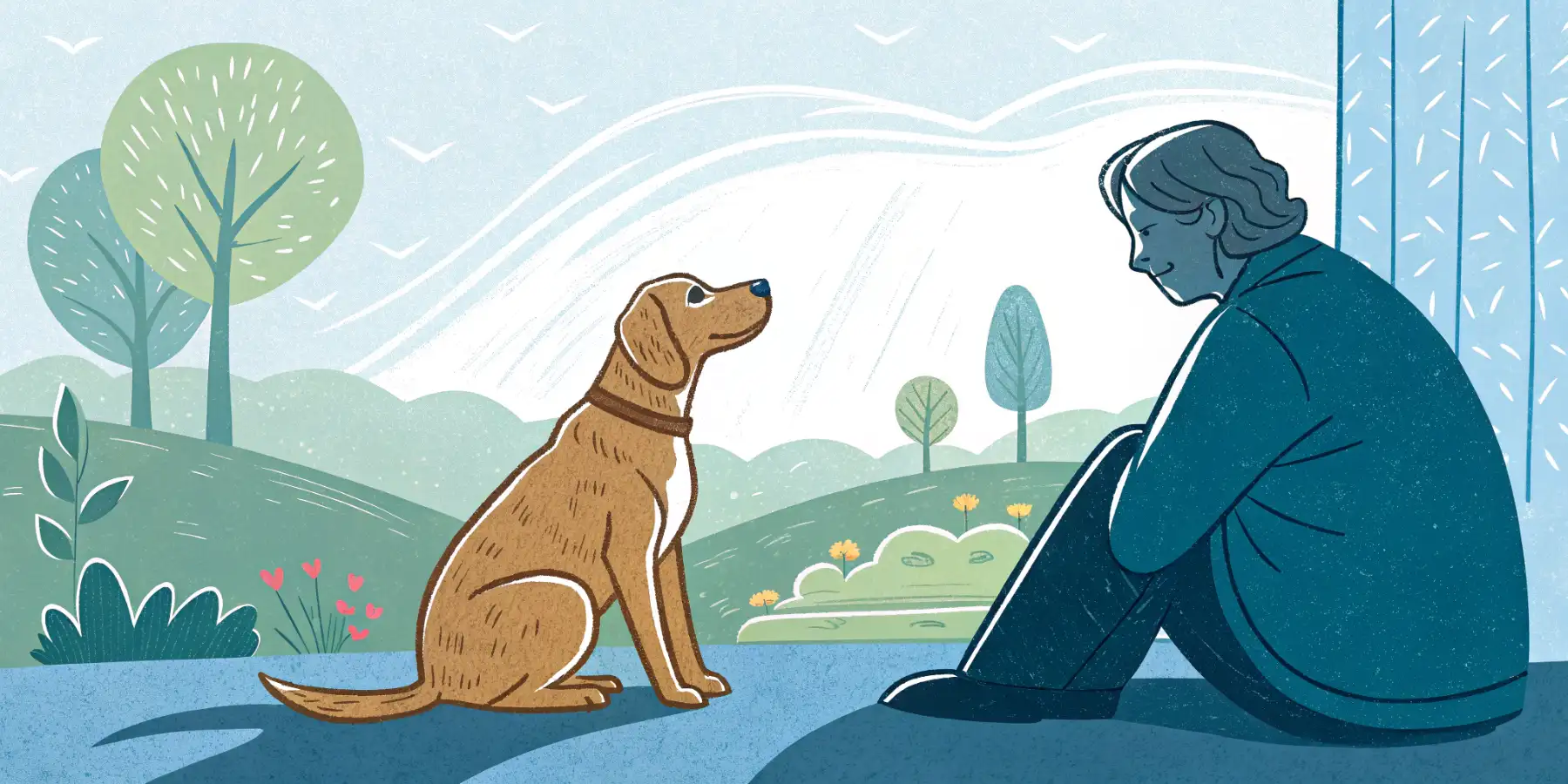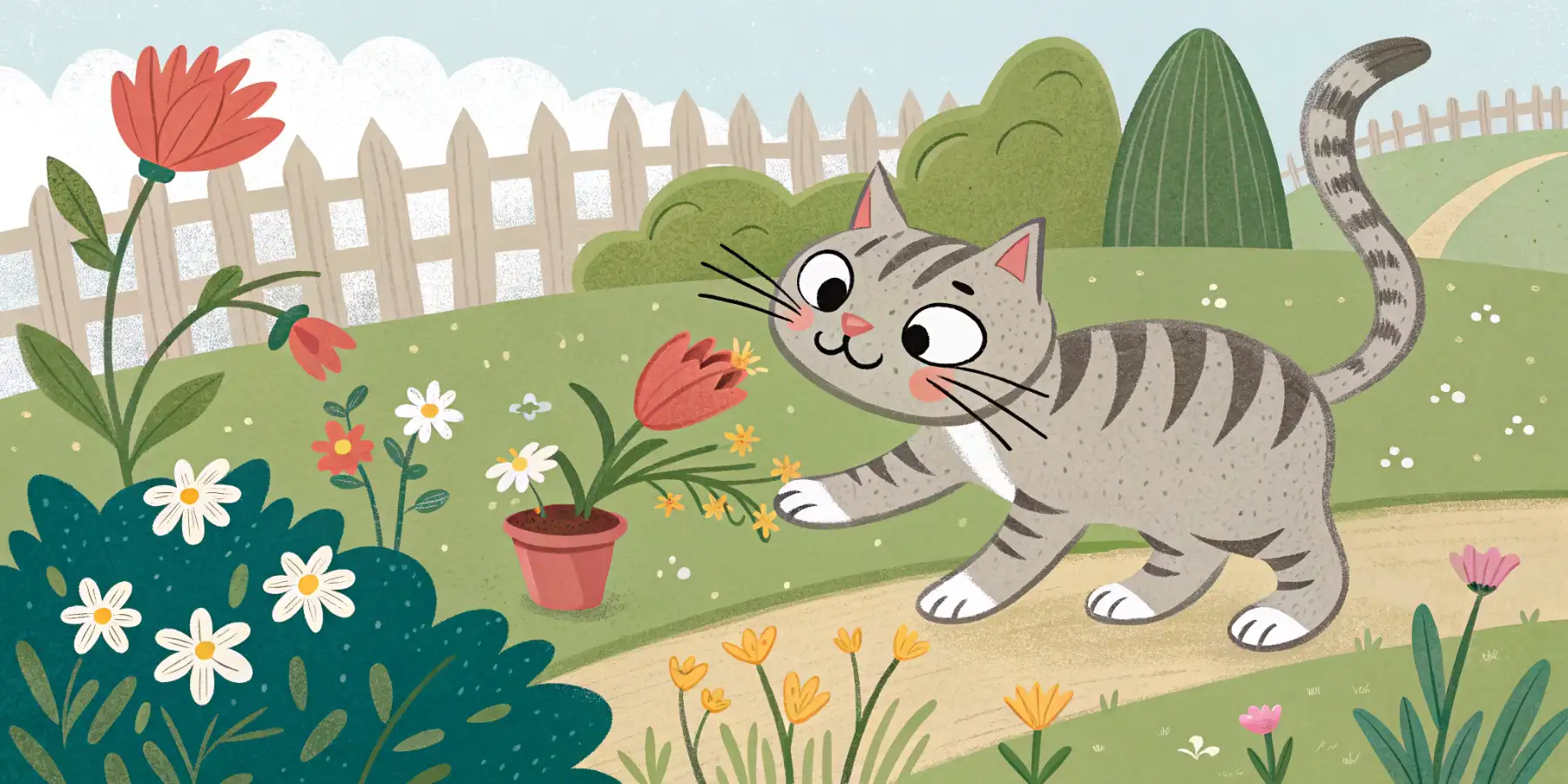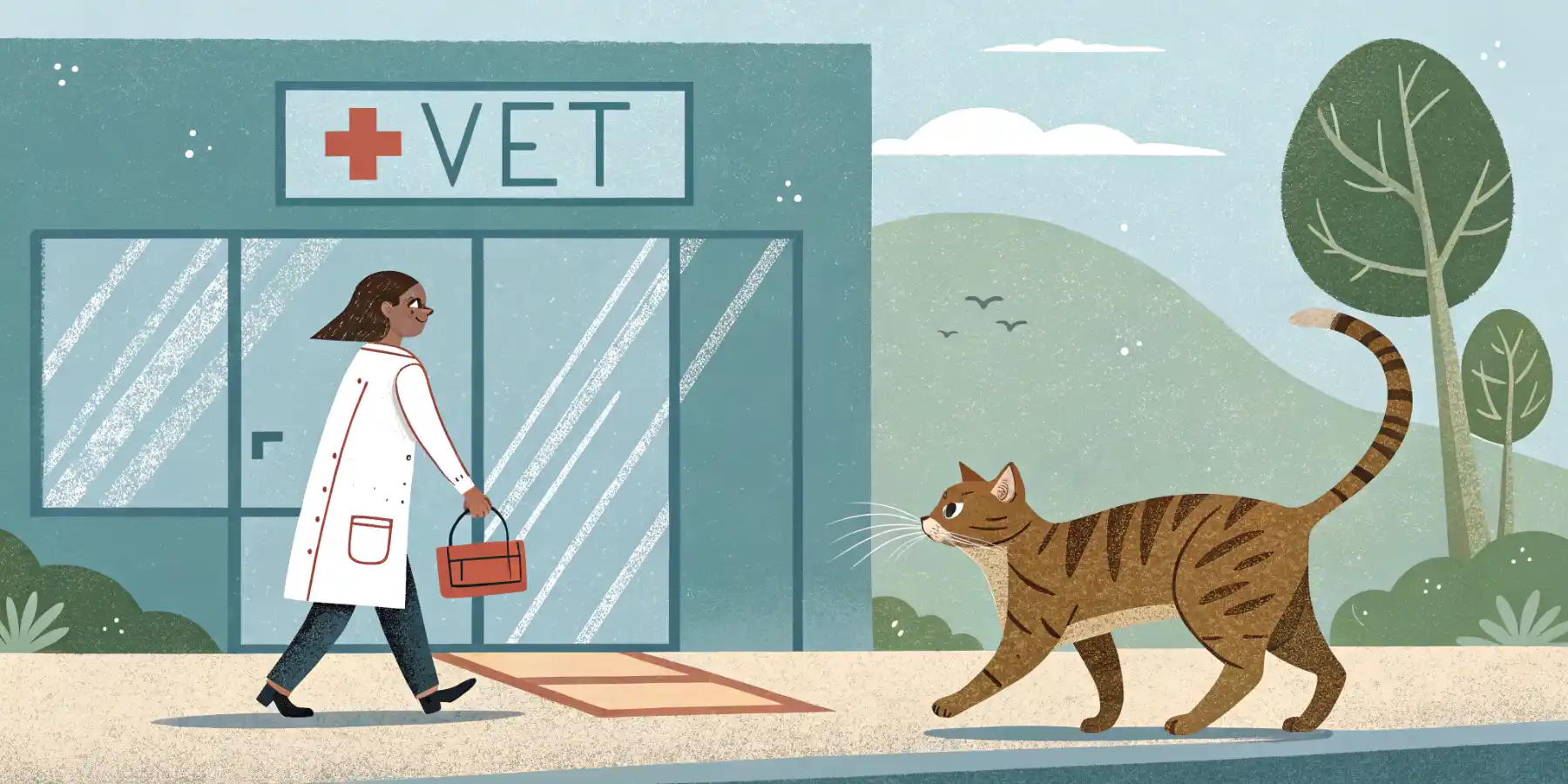
Senior Cat Care: Check-ups & Screening
Is your senior cat slowing down? Learn why semi-annual vet check-ups & screenings are vital for their health & happiness!
Senior Cat Veterinary Care: Semi-Annual Check-ups and Diagnostic Screening
As our feline friends gracefully age, their healthcare needs shift. What was once a yearly vaccination visit transforms into a more comprehensive approach focused on early detection and proactive management of age-related conditions. That’s where senior cat veterinary care, including semi-annual check-ups and diagnostic screenings, comes in. Don’t think of it as a sign of aging; think of it as giving your cat the best possible chance at a long, comfortable, and happy life.
Why Semi-Annual Check-Ups are Essential for Senior Cats
Cats are notoriously good at hiding illness. They’re masters of disguise, often masking pain and discomfort until a condition is quite advanced. This is why more frequent check-ups – every six months instead of annually – are crucial for senior cats (generally defined as cats over the age of 11).
In my experience, catching problems early makes all the difference. A small change in kidney function, detected early, can be managed with diet and medication, potentially adding years to your cat’s life. Left undetected, that same change can progress to kidney failure, a much more serious and challenging condition. Semi-annual check-ups allow your veterinarian to monitor your cat’s health more closely, identify subtle changes, and intervene before they become major problems. This proactive approach helps maintain your cat’s quality of life and can even extend their lifespan.
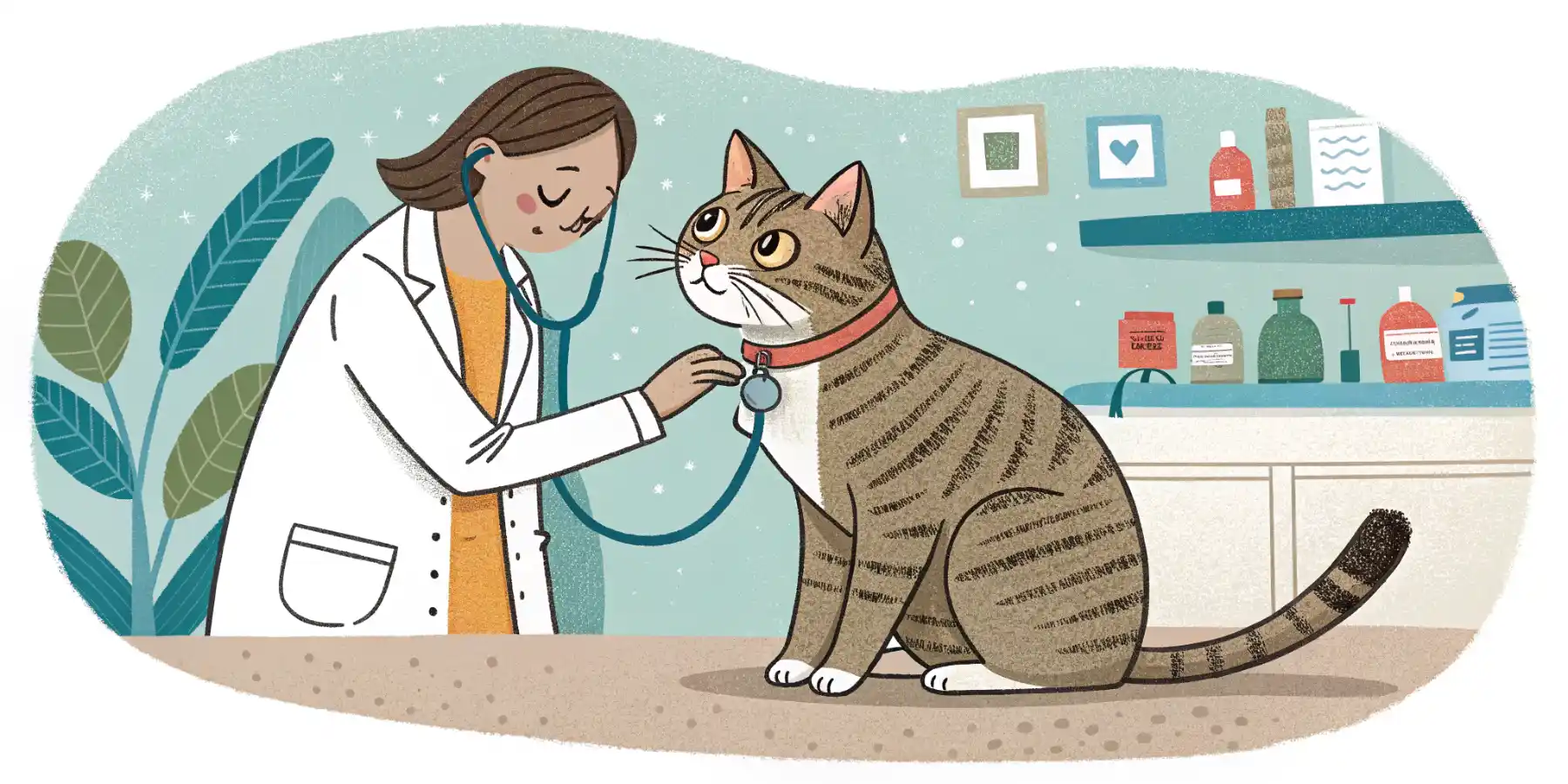
A veterinarian examines a senior cat during a check-up, emphasizing the importance of hands-on assessment.
What to Expect During a Senior Cat Check-Up
A senior cat check-up is much more than just a quick listen to the heart and lungs. It’s a thorough assessment that typically includes:
- A Comprehensive Physical Exam: Your vet will examine your cat from nose to tail, checking their eyes, ears, mouth, skin, and coat. They’ll also palpate their abdomen to feel for any abnormalities, assess their muscle mass, and evaluate their gait and posture.
- Weight and Body Condition Scoring: Weight loss is a common sign of illness in senior cats. Your vet will weigh your cat and assess their body condition score to determine if they’re at a healthy weight.
- Discussion of History and Behavior: Be prepared to answer questions about your cat’s eating and drinking habits, litter box behavior, activity level, and any other changes you’ve noticed. Remember, even seemingly minor changes can be significant clues. Document all these observations before the appointment to help your vet get a clearer picture of your cat’s health.
- Dental Examination: Dental disease is extremely common in older cats, and it can lead to pain, infection, and even affect other organs. Your vet will examine your cat’s teeth and gums for signs of dental problems.
- Blood Pressure Measurement: High blood pressure is a common problem in senior cats, and it can damage the eyes, kidneys, heart, and brain. Routine blood pressure checks are vital.
The Importance of Diagnostic Screening for Older Cats
In addition to the physical exam, diagnostic screening plays a critical role in senior cat veterinary care. Diagnostic screening helps detect underlying health issues before they become clinically apparent.
- Complete Blood Count (CBC): A CBC measures the different types of cells in your cat’s blood, including red blood cells, white blood cells, and platelets. It can help detect anemia, infection, inflammation, and other blood disorders.
- Serum Chemistry Profile: This test measures the levels of various enzymes, electrolytes, and other substances in your cat’s blood. It provides valuable information about the health of your cat’s organs, including the kidneys, liver, pancreas, and thyroid.
- Urinalysis: A urinalysis examines your cat’s urine for signs of infection, kidney disease, diabetes, and other problems.
- Thyroid Testing (T4): Hyperthyroidism (an overactive thyroid gland) is a common condition in senior cats. A T4 test measures the level of thyroid hormone in your cat’s blood.
- SDMA Test: The SDMA test is a sensitive indicator of kidney function. It can detect kidney disease earlier than traditional creatinine tests.
- Fecal Examination: Checks for intestinal parasites that can affect overall health and well-being.
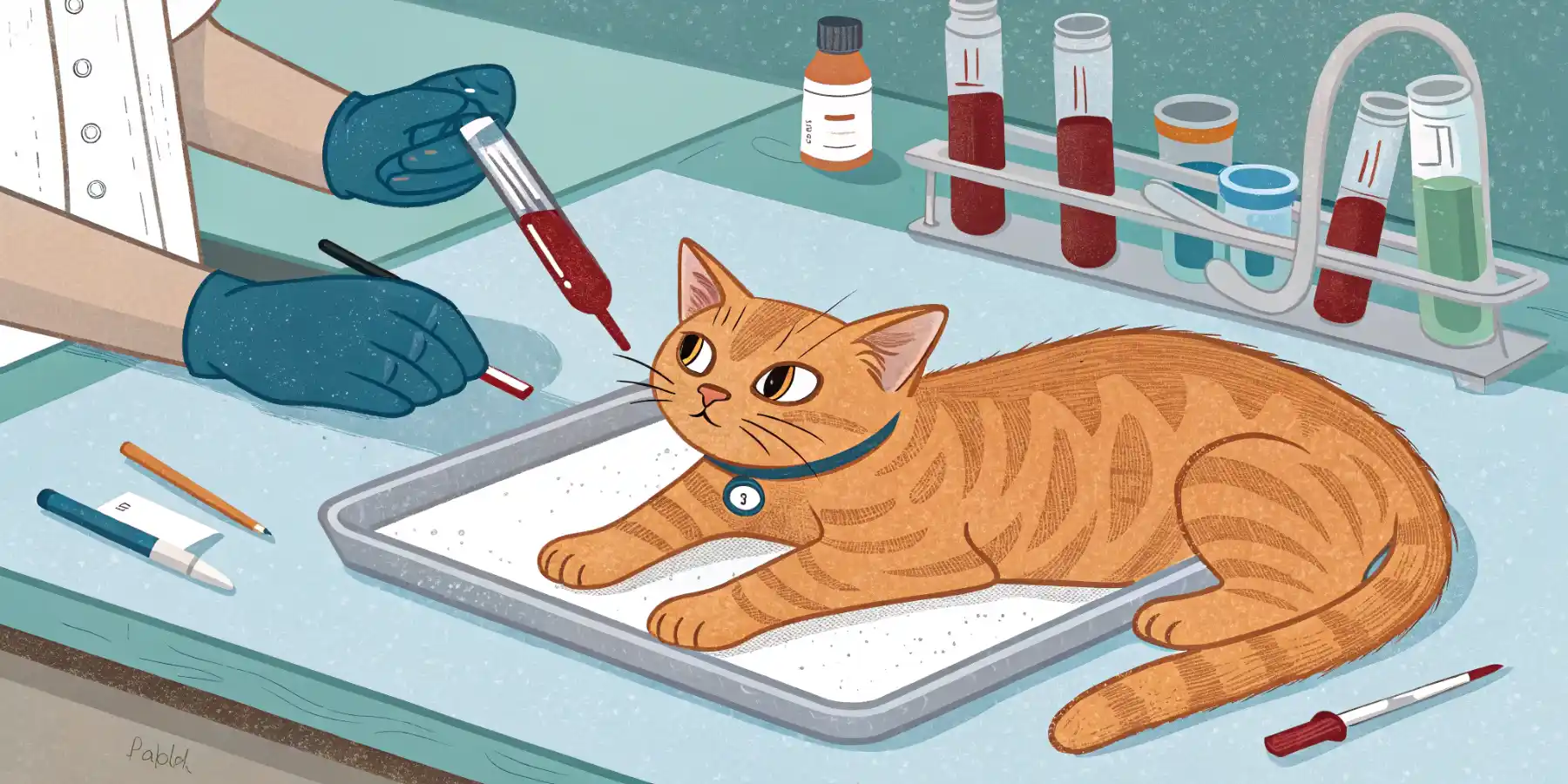
Veterinarian drawing a blood sample from a cat for diagnostic screening, highlighting the importance of early disease detection.
Common Health Concerns in Senior Cats
Understanding the common health concerns in senior cats is crucial for proactive care:
- Kidney Disease: Extremely common. Early detection and dietary management are critical. Look out for increased thirst and urination.
- Hyperthyroidism: As mentioned, overactive thyroid, leading to weight loss, increased appetite, and hyperactivity.
- Diabetes Mellitus: Can cause increased thirst, urination, and weight loss. Often managed with insulin injections.
- Arthritis: Causes pain and stiffness in the joints. Look for decreased activity, difficulty jumping, and reluctance to be petted in certain areas.
- Dental Disease: Can cause pain, infection, and difficulty eating.
- Cancer: Unfortunately, more common in older cats. Early detection is key.
- Cognitive Dysfunction Syndrome (CDS): Similar to Alzheimer’s disease in humans. Look for disorientation, confusion, changes in sleep patterns, and decreased interaction.
The Financial Aspect of Senior Cat Care
I know that the cost of veterinary care can be a concern for many pet owners. However, I believe that investing in preventative care for your senior cat is a worthwhile investment. Catching problems early can often save you money in the long run by preventing the need for more expensive treatments later on.
Talk to your veterinarian about your budget and discuss the most important diagnostic tests for your cat’s individual needs. There are also pet insurance options and payment plans available that can help make senior cat veterinary care more affordable. Explore pet insurance options for senior cats specifically designed to cover age-related conditions.
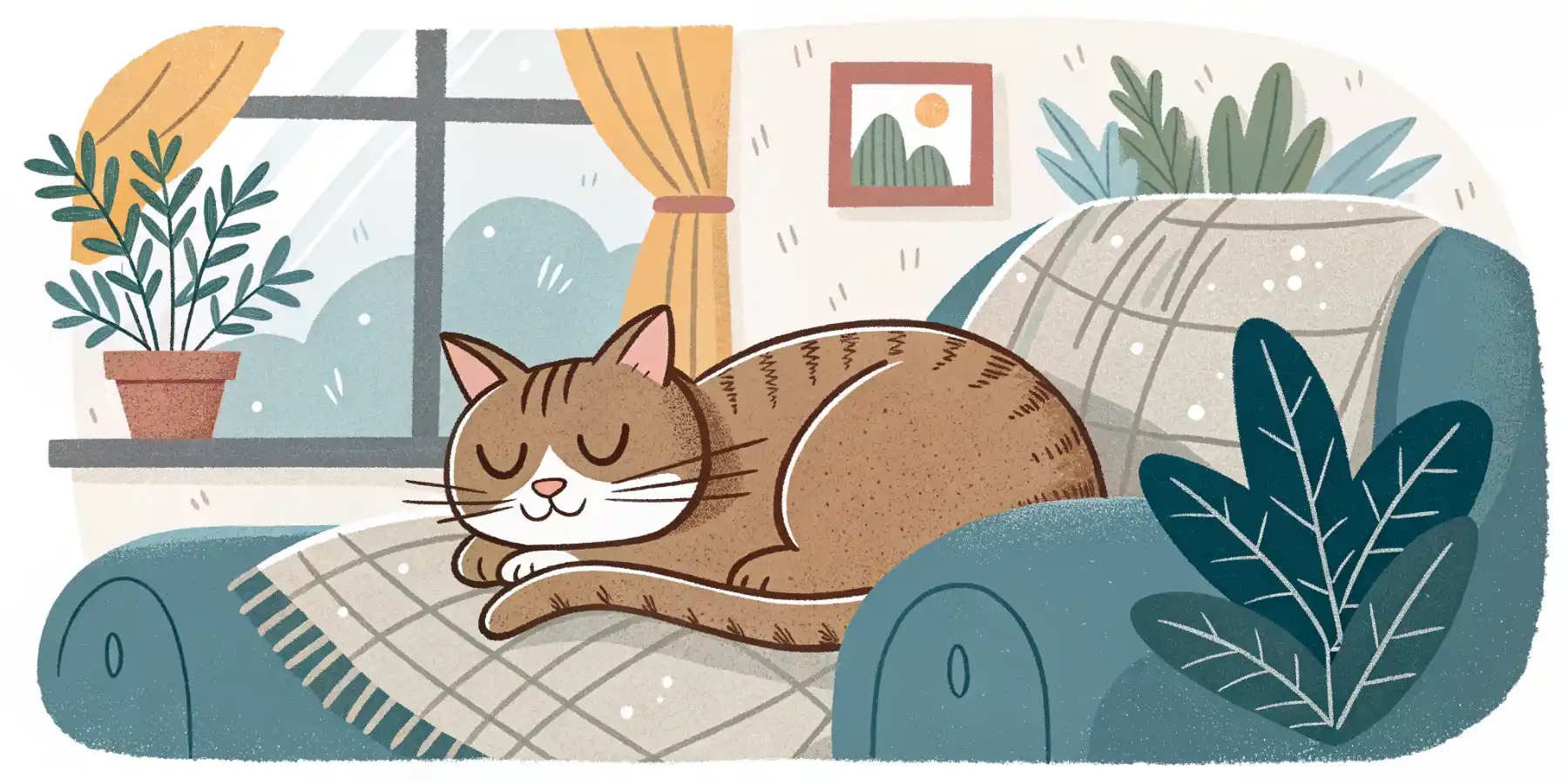
A content senior cat relaxing in a sunbeam, representing the goal of providing a comfortable life for aging pets.
Making the Most of Your Senior Cat’s Golden Years
Senior cat veterinary care isn’t just about treating illness; it’s about helping your cat live a long, happy, and comfortable life. By scheduling regular check-ups, performing diagnostic screening, and providing a loving and supportive environment, you can help your feline friend enjoy their golden years to the fullest. Remember, a little extra attention and care can make a world of difference. Don’t wait until your cat is showing obvious signs of illness to seek veterinary care. Proactive care is the best way to ensure your senior cat enjoys a healthy and happy life.
